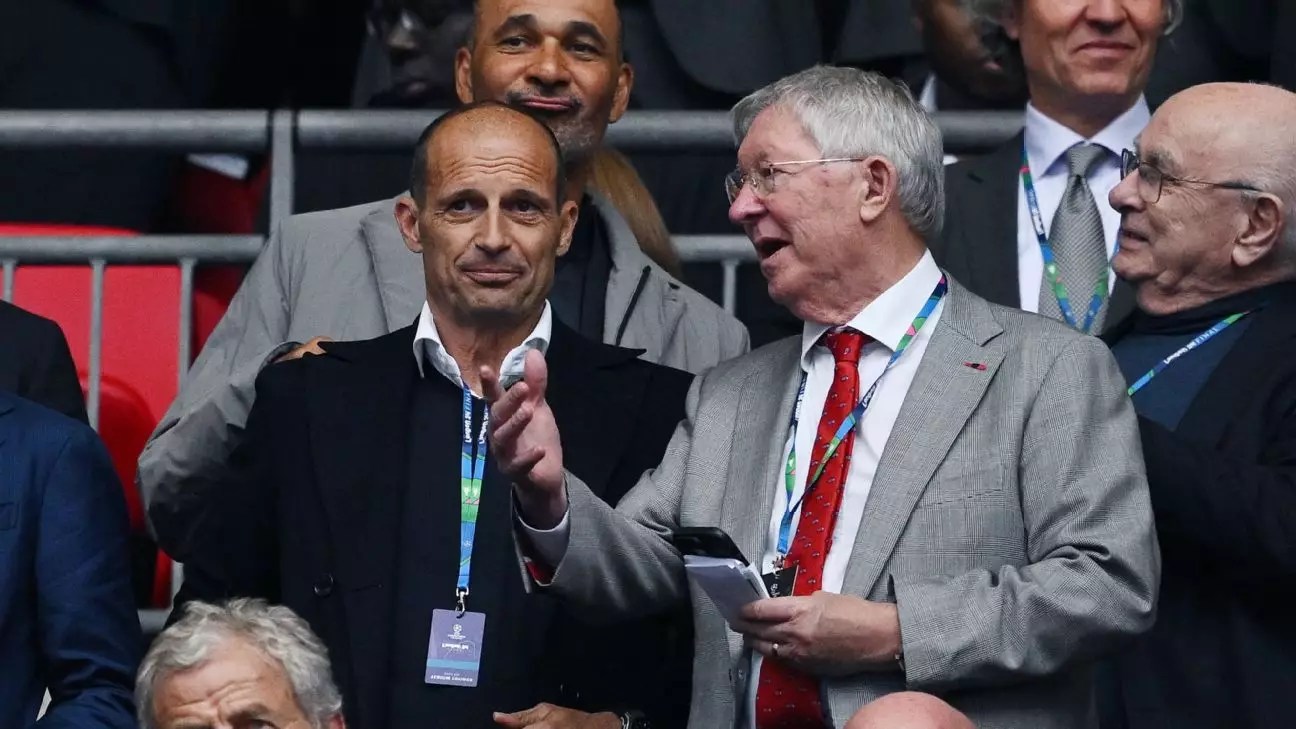Even over a decade after stepping away from the touchline, Sir Alex Ferguson’s heart still beats for the beautiful game. At 82, the former manager of Manchester United acknowledges that, on occasion, he feels a pang of longing for the excitement and glory of managing a high-profile team. This confession came forth during a candid interview with the BBC, where Ferguson reflected on his time in charge and the subsequent years that have followed his retirement. While his remarkable career came to a close after the 2012-13 season, when he guided Manchester United to reclaim the Premier League title, the thrill of competition in football, particularly in significant matches, remains a part of him.
Ferguson reminisced about attending a European final shortly after retiring, revealing a poignant moment he shared with his late wife, Cathy. He recounted saying, “This is what I miss — big games, the European games.” This statement underscores the intensity and spectacle that defines elite football—elements that Ferguson thrived on during his time as a manager. He has since sought to recapture that exhilaration by attending various European finals, hoping to find solace in the moments he once relished on the touchline. The narrative goes beyond mere nostalgia; it speaks to a deep-seated passion for high-stakes competitions—a testament to Fergusons’ unparalleled career at the apex of football management.
Ferguson’s tenure at Manchester United stands as a pinnacle in football history, characterized by an astonishing record that remains unmatched. Under his stewardship, the club amassed a staggering 13 league titles, alongside two Champions League trophies, five FA Cups, and four League Cups. Each accolade not only reflects his managerial skill but also illustrates a period of unprecedented success for the club. However, since his departure, Manchester United has faced tumultuous times. The managerial landscape has changed, with several figures—David Moyes, Louis van Gaal, Jose Mourinho, Ole Gunnar Solskjaer, and current boss Erik ten Hag—stepping into the hot seat, each attempting to restore the club to its former glory.
Amidst the club’s challenges, Ferguson’s legacy looms large. His record of success casts a long shadow over the present-day struggles for consistency and silverware faced by his successors. United’s recent journeys have not been without their low points, as the club grapples with finding a stable identity post-Ferguson. Injuries, underperformance, and fluctuating confidence have dogged their pursuit of brilliance, causing many fans to reminisce about the glory days of the Ferguson era. The contrasts between then and now highlight the difficulties inherent in maintaining excellence in a club of Manchester United’s stature.
Sir Alex Ferguson’s reflections serve as a powerful reminder of the passion that drives management at the highest level. While he acknowledges the bittersweet nature of reminiscing about his past, his contributions to football continue to inspire a generation of fans and future managers alike. Even as Manchester United navigates its current challenges, the core ethos of determination and excellence that Ferguson instilled in the club endures, providing hope for the future. The love for the game, particularly during those epic confrontations, remains a defining narrative of his life in football. Ferguson’s legacy not only shapes the identity of Manchester United but also enriches the landscape of the sport itself.


Leave a Reply